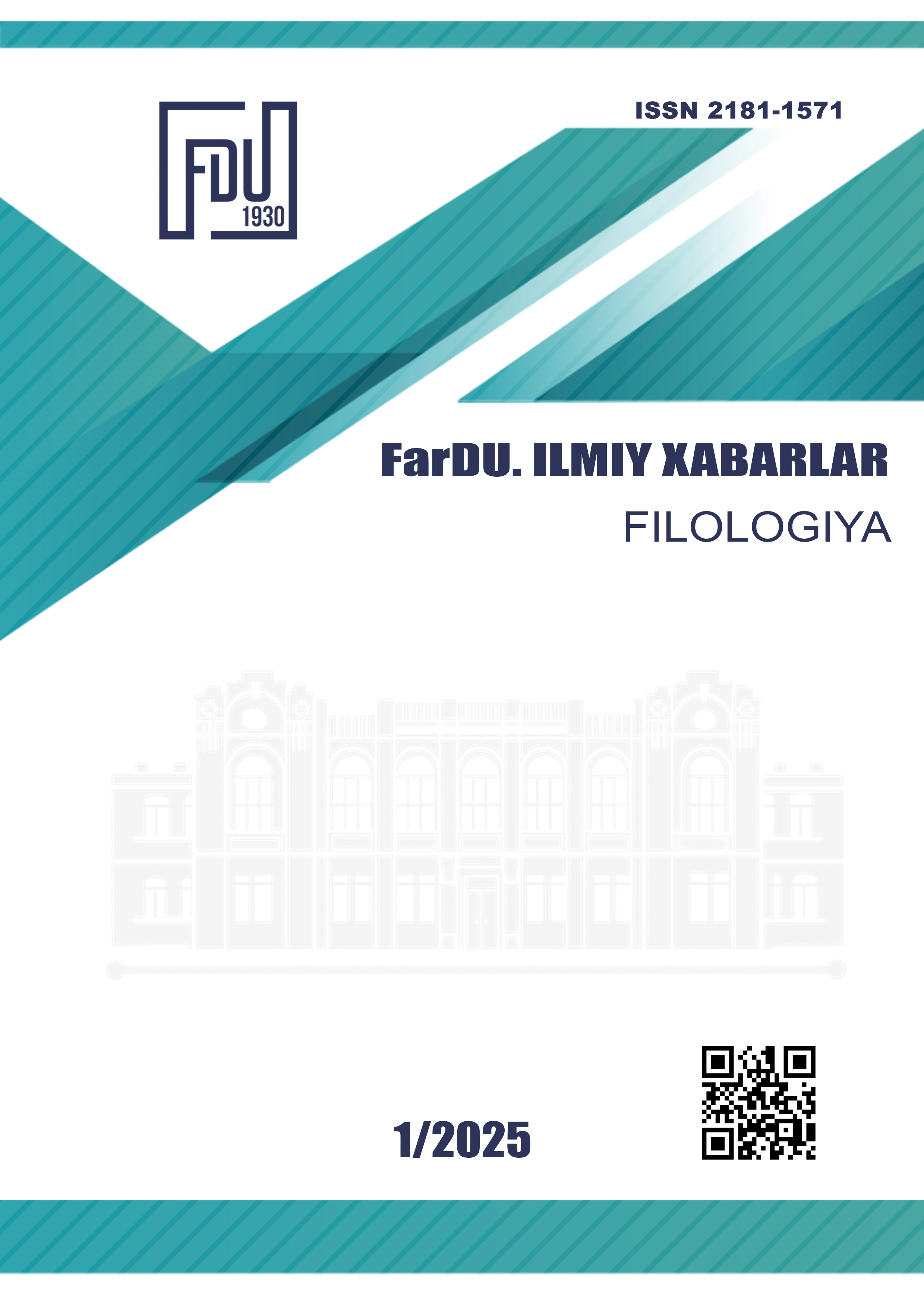WEATHER AND NATURAL PHENOMENA IN ENGLISH AND RUSSIAN PROVERBS: A STRUCTURAL ANALYSIS
Keywords:
proverb, weather, natural phenomena, structural analysis, English, Russian, semantics, syntax, cognitive linguistics, discourse, folk wisdom, metaphor, phraseology, comparison, cultural perception.Abstract
This study provides a structural analysis of English and Russian proverbs related to weather and natural phenomena. It explores syntactic, lexical, and semantic patterns in both languages and examines their cultural and cognitive significance. The study identifies key metaphorical frameworks, compares the structural composition of proverbs, and highlights linguistic similarities and differences. The findings contribute to the broader understanding of proverbial discourse in comparative linguistics.
References
Lakoff, G., & Johnson, M. (1980). Metaphors We Live By. University of Chicago Press.
Mieder, W. (2004). Proverbs: A Handbook. Greenwood Press.
Mokienko, V. (2009). Словарь русских пословиц и поговорок. Издательство АСТ.
Norrick, N. (1985). How Proverbs Mean: Semantic Studies in English Proverbs. Mouton.
Telia, V. (1996). Русская фразеология: семантический, прагматический и когнитивный аспекты. Наука.
Gibbs, R. W. (1994). The Poetics of Mind: Figurative Thought, Language, and Understanding. Cambridge University Press.
Honeck, R. P. (1997). A Proverb in Mind: The Cognitive Science of Proverbial Wit and Wisdom. Lawrence Erlbaum Associates.
Baranov, A. N., & Dobrovol’skij, D. O. (2008). Когнитивная лингвистика и фразеология. Знак.
Taylor, A. (1931). The Proverb. Harvard University Press.
Kuiper, K., & Allan, W. S. (2017). Introducing Pragmatics in Use. Routledge.
Downloads
Published
Issue
Section
License
Copyright (c) 2025 Scientific journal of the Fergana State University

This work is licensed under a Creative Commons Attribution-NonCommercial-NoDerivatives 4.0 International License.
How to Cite
Most read articles by the same author(s)
- Abbasova Nargiza Kabilovna, EVALUATING THE IMPACT OF DIGITAL TOOLS IN CLASSROOMS AND ONLINE LEARNING PLATFORMS , Scientific journal of the Fergana State University: No. 2 (2024): Scientific journal of the Fergana State University (Social humanities sciences)
- Abbasova Nargiza Kabilovna, Abdulkhakimova Mokhlaroy, PROMOTING ORAL COMMUNICATION THROUGH READING INTEGRATION , Scientific journal of the Fergana State University: No. 2 (2024): Scientific journal of the Fergana State University (Social humanities sciences)
- Abbasova Nargiza Kobilovna, Xakimova Zumradxon Qudratali qizi, SPEECH ACT AS AN IMPORTANT FUNCTION OF COMMUNICATION , Scientific journal of the Fergana State University: No. 6- TOM (2023): SPECIAL ISSUE
- Abbasova Nargiza Kabilovna, FORMATION OF FOREIGN-LANGUAGE COMMUNICATIVE COMPETENCES IN LANGUAGE LEARNERS USING ENGLISH PROVERBS AND SAYINGS , Scientific journal of the Fergana State University: No. 3 (2024): Scientific journal of the Fergana State University. Application set (Social humanities sciences)
- Abbasova Nargiza Kabilovna, Shikina Anastasiya Aleksandrovna, INTEGRATING AI INTO ESP COURSE TO IMPROVE LANGUAGE LEARNING THROUGH SMART AND EFFECTIVE STRATEGIES , Scientific journal of the Fergana State University: No. 2 (2025): FarDU ilmiy xabarlari jurnali (FILOLOGIYA)
- Abbasova Nargiza Kabilovna, INSIGHTS, CHALLENGES, AND NEEDS OF ESP TEACHERS IN THE EFL CONTEXT , Scientific journal of the Fergana State University: No. 3 (2025): FarDU.Ilmiy xabarlar jurnali (PEDAGOGIKA)

